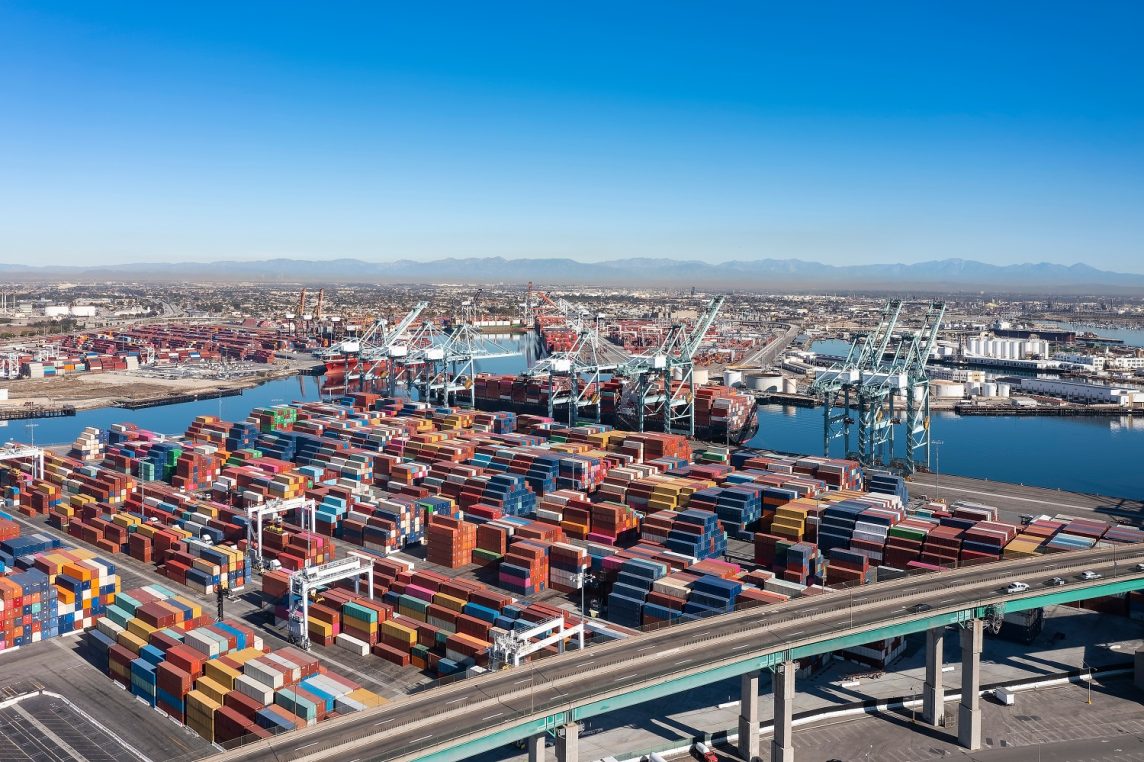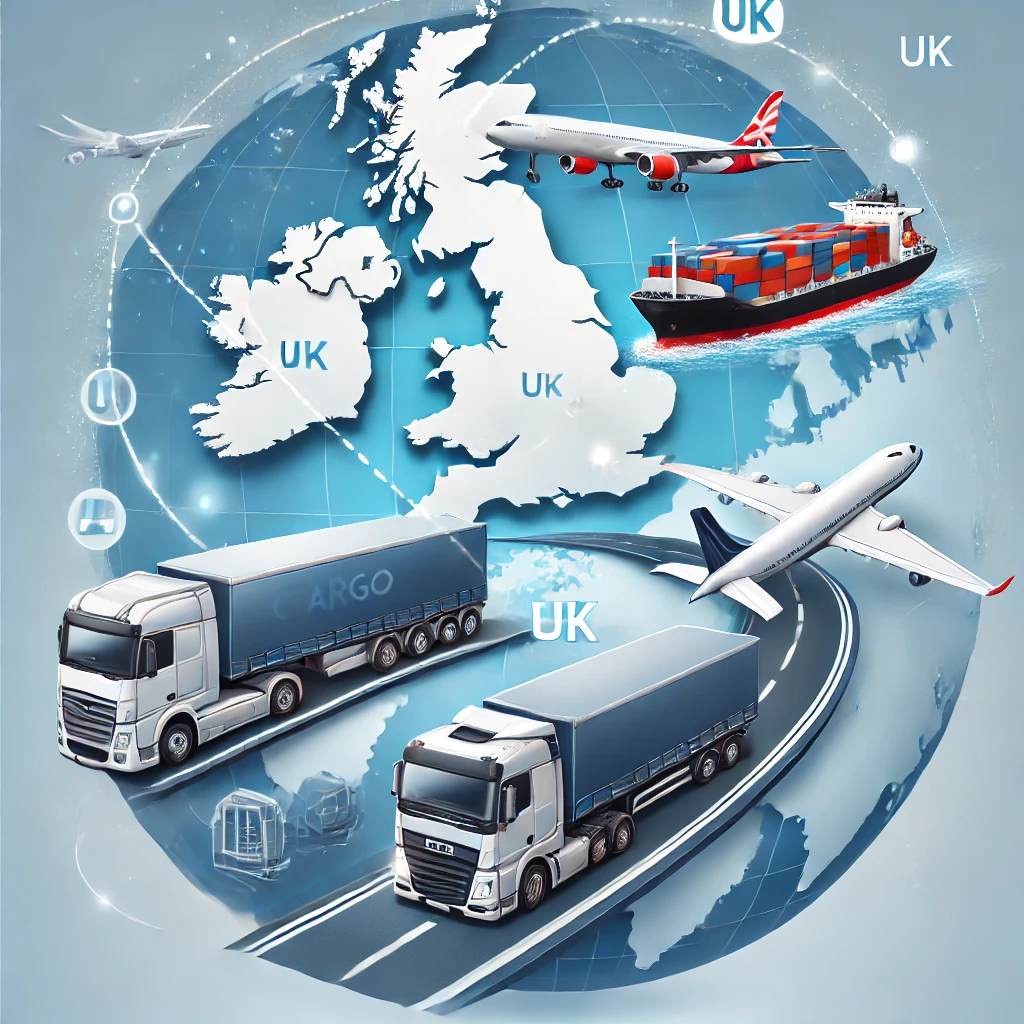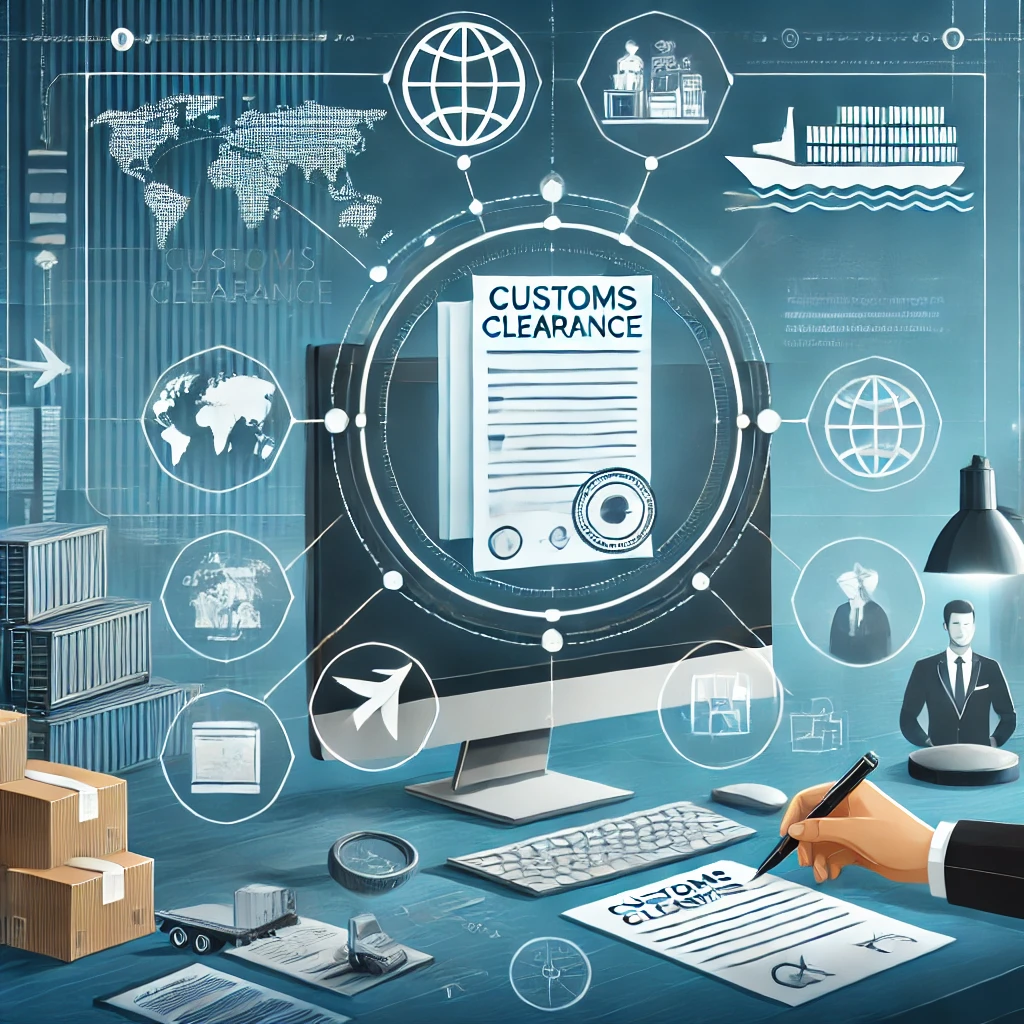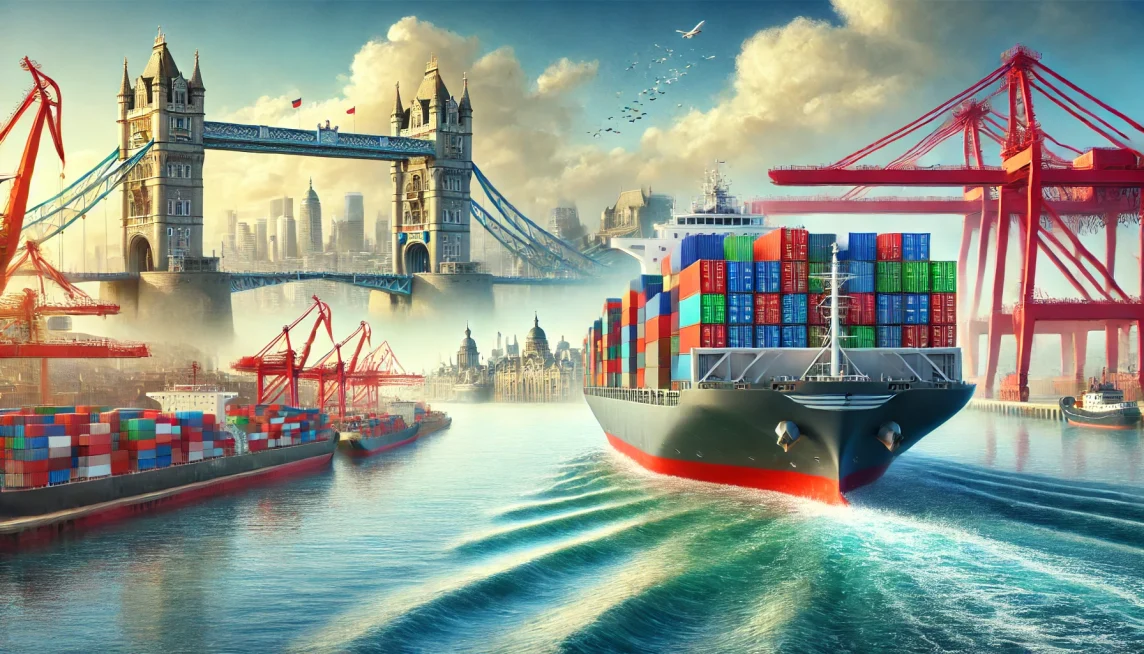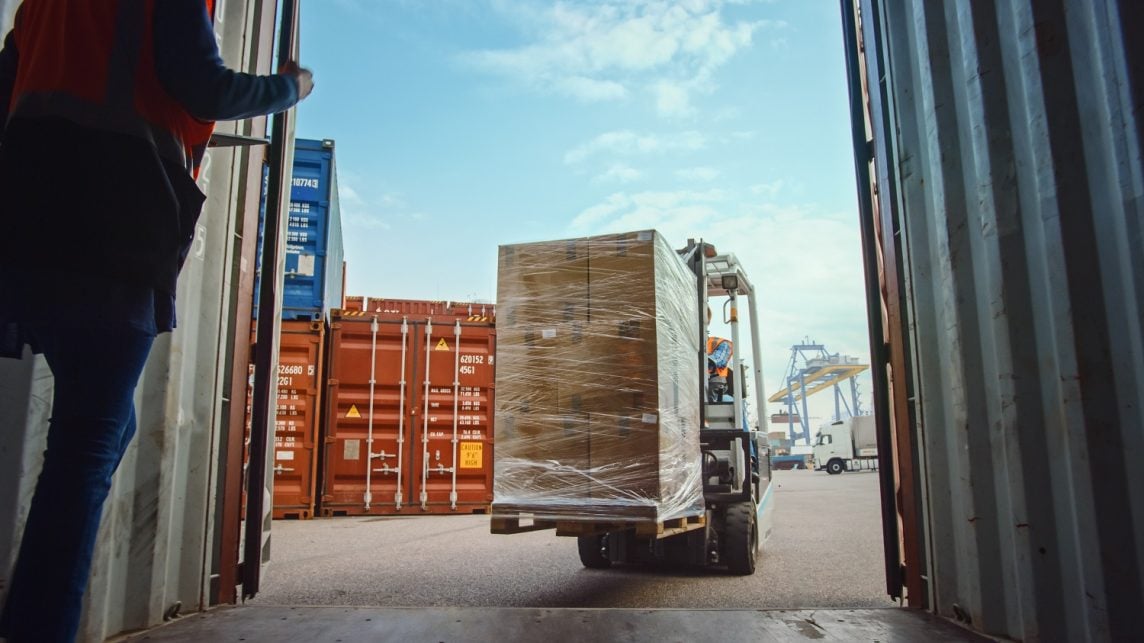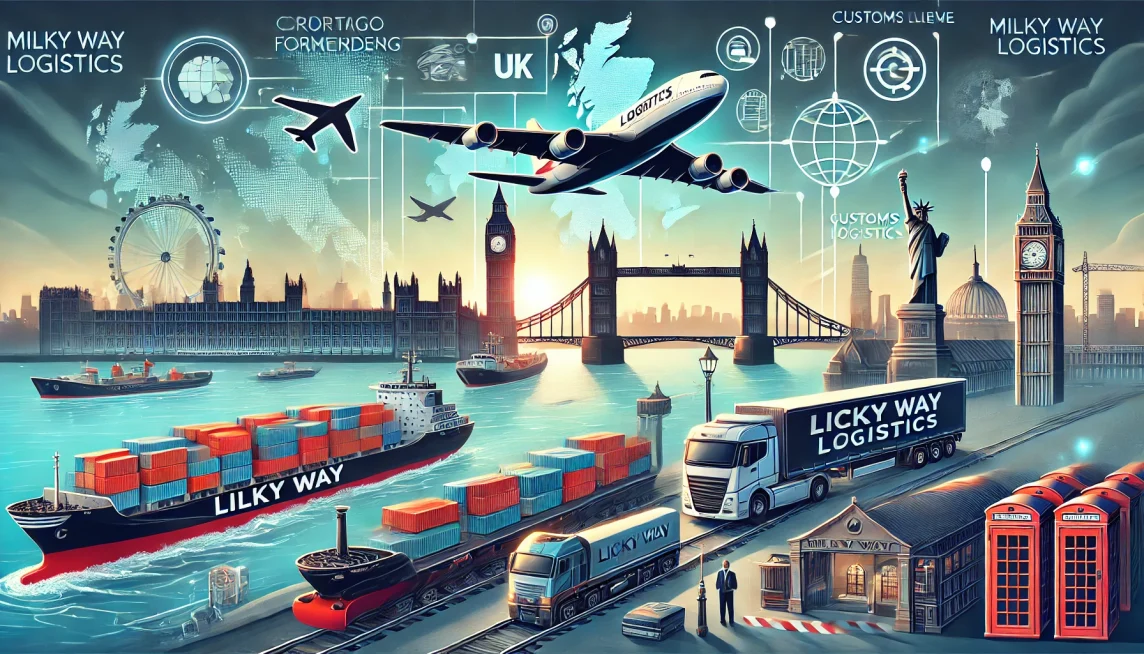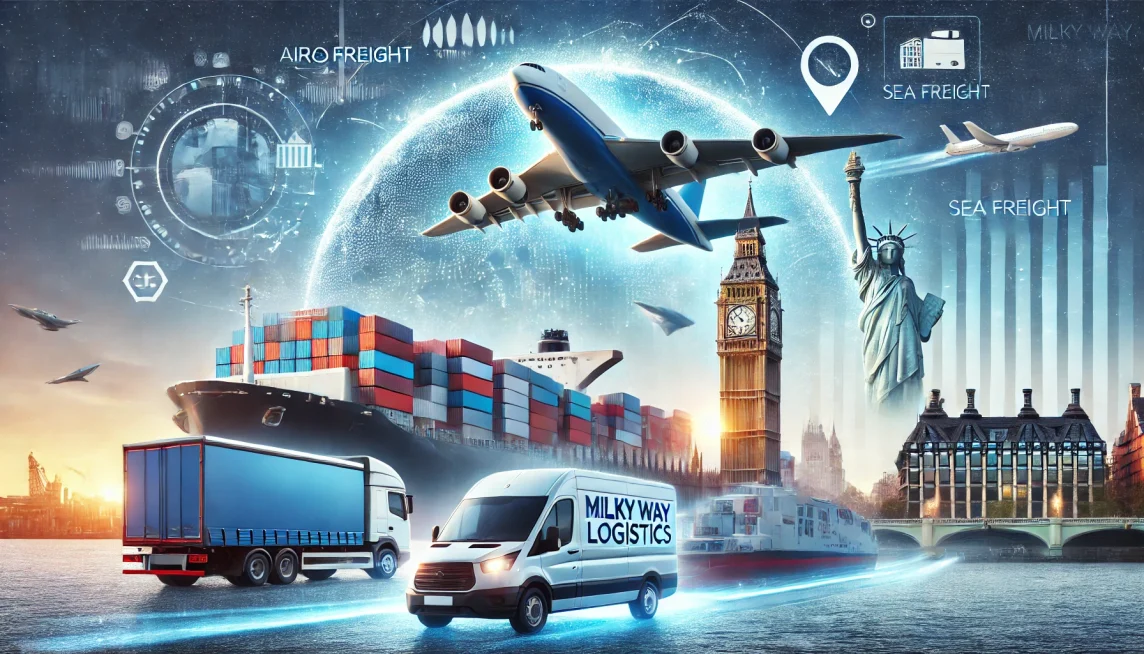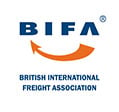How to Ship a Container to the US: A Comprehensive Guide
Shipping a container to the US can be a daunting task, especially if you’re navigating the complexities of international logistics for the first time. At Milky Way Logistics, we specialize in providing seamless, efficient, and cost-effective container shipping solutions, ensuring your goods reach their destination without hassle. This blog will cover everything you need to know about how to ship a container to the US, from understanding the process to choosing the right logistics partner.
Shipping Container; Reliable and Cost Effective
Container shipping is the backbone of global trade, offering a reliable and cost-effective method for transporting goods over long distances. Whether you’re a business importing goods or an individual relocating, shipping a container to the US offers several advantages:
- Security: Containers are sealed and protect goods from damage and theft.
- Versatility: Suitable for transporting a wide range of goods, from furniture to machinery.
- Cost-Effectiveness: Ideal for large shipments, reducing the cost per unit.
- Global Reach: Connects to almost every major port in the world.
How to Ship a Container to the US
1. What are the requirements of your specific shipment
The first step in how to ship a container to the US is assessing your shipping needs. Consider:
- Type of Goods: Fragile, perishable, or hazardous goods may require special handling.
- Container Size: Common options include 20-foot and 40-foot containers.
- Shipping Method: Choose between Full Container Load (FCL) and Less than Container Load (LCL) based on your shipment volume.
At Milky Way Logistics, we offer tailored solutions to match your requirements, ensuring your goods are transported safely and efficiently.
2. Choose a Reliable Freight Forwarder
Selecting the right logistics partner is crucial for a successful shipment. A reliable freight forwarder like Milky Way Logistics will handle everything from documentation to customs clearance, providing end-to-end support.
3. Prepare Necessary Documentation
Shipping to the US involves several key documents, including:
- Bill of Lading: Proof of shipment and receipt.
- Commercial Invoice: Details of the goods being shipped.
- Packing List: Overview of items in the container.
- Import Permits: Required for certain goods, such as food or electronics.
We at Milky Way Logistics ensure all documentation is accurate and compliant with US regulations, minimizing delays.
4. Understand US Customs Requirements
The US has stringent customs regulations that all shipments must comply with. These include:
- Customs Declaration: Declare the value and type of goods.
- Import Duties and Taxes: Calculated based on the nature and value of the goods.
- Inspection Procedures: Containers may be subject to random checks.
Our team at Milky Way Logistics is experienced in navigating US customs, ensuring your container clears inspection smoothly.
5. Select the Right Shipping Route
Choosing the optimal route and port is essential to reduce transit time and costs. Major US ports include:
- Port of Los Angeles: Ideal for shipments to the West Coast.
- Port of New York/New Jersey: Serves the East Coast.
- Port of Houston: A hub for shipments to the southern US.
We offer strategic route planning to ensure timely delivery of your container.
6. Arrange for Container Pickup and Delivery
Once your container arrives at the US port, you’ll need to arrange for transportation to its final destination. Options include:
- Truck Transport: For shorter distances.
- Rail Transport: Cost-effective for long-distance inland shipping.
Milky Way Logistics provides door-to-door services, coordinating the entire delivery process.
How to Ship a Container to the US Cost-Effectively
Understanding the costs involved in how to ship a container to the US is essential for budgeting. Key cost factors include:
- Container Size: Larger containers cost more to ship.
- Shipping Route: Longer distances and less direct routes increase costs.
- Customs Duties: Vary depending on the type and value of goods.
- Additional Services: Insurance, storage, and special handling add to the cost.
At Milky Way Logistics, we offer transparent pricing and competitive rates to help you stay within budget.
How to Ship a Container to the US; Overcome Challenges
1. Delays in Customs
Customs delays can disrupt your supply chain. To prevent this, ensure all documentation is accurate and compliant. Milky Way Logistics specializes in customs management, reducing the risk of delays.
2. Damage to Goods
Improper packaging can result in damaged goods. We provide professional packing services to ensure your items are protected during transit.
3. Complex Regulations
Navigating US import regulations can be challenging. Our team of experts stays updated on the latest policies, ensuring your shipment adheres to all requirements.
Choose a Reliable Freight Forwarder;
Thinking of how to ship a container to the US? Contact Milky Way Logistics as your trusted partner because of;
- Experience: Years of expertise in international shipping.
- Comprehensive Services: From packing and documentation to customs clearance and delivery.
- Customer Support: Dedicated account managers to assist you at every step.
- Global Network: Partnerships with major shipping lines for reliable service.
Tips for a Successful Experience in How to Ship a Container to the US
- Plan Ahead: Book your shipment early to avoid peak-season delays.
- Insure Your Goods: Protect your shipment from unforeseen events.
- Communicate Regularly: Stay in touch with your freight forwarder for updates.
Conclusion
Shipping a container to the US doesn’t have to be complicated. By understanding the process and partnering with a reliable logistics provider like Milky Way Logistics, you can ensure a smooth and hassle-free experience. Whether you’re shipping for business or personal reasons, we’re here to make the journey seamless and cost-effective.
If you’re looking for expert guidance on how to ship a container to the US, contact Milky Way Logistics today. Let us handle your shipment with care and precision, so you can focus on what matters most—your business or personal goals.
With this guide, you’re now equipped with the knowledge and resources to ship a container to the US. Trust Milky Way Logistics to be your partner in global trade!
